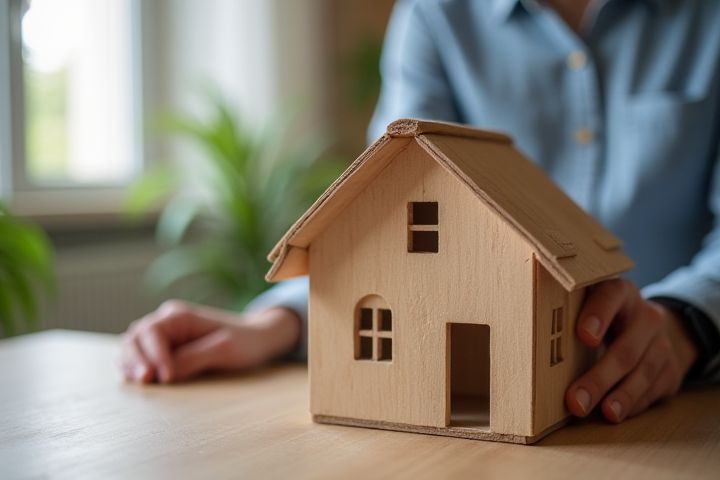
House flipping can be a lucrative investment opportunity if approached with thorough research and careful planning. It involves purchasing undervalued properties, making necessary renovations, and selling them at a higher price within a short timeframe. Successful house flippers often analyze local real estate trends, costs of materials, and labor expenses to maximize profit margins. Understanding the neighborhoods and property appreciation rates is essential for minimizing risks and ensuring optimal returns. You should also factor in potential market fluctuations that can affect resale value.
Is House Flipping A Good Investment
Market Conditions
House flipping can be a lucrative investment when market conditions are favorable, particularly during a seller's market characterized by high demand and limited inventory. Understanding local real estate trends, such as property appreciation rates and neighborhood desirability, is crucial to maximizing profit margins. You should consider factors like renovation costs and timeline, as well as the potential for unforeseen expenses. Monitoring interest rates and economic indicators can also help you make informed decisions about the optimal time to buy, renovate, and sell properties for the best returns.
Acquisition Costs
Acquisition costs play a crucial role in the house flipping process, significantly impacting your potential profit margins. These costs encompass the purchase price, closing fees, inspections, and any necessary initial repairs, all of which can vary widely based on location and property condition. By evaluating properties with lower acquisition costs, you can maximize your return on investment and mitigate risks associated with unforeseen expenses. Conducting thorough market research and financial analysis will help determine whether a property is a suitable candidate for flipping, ensuring your investment aligns with your financial goals.
Renovation Budget
Successful house flipping hinges on a well-planned renovation budget, which should include detailed estimates for repairs, materials, and labor. You need to prioritize structural updates, such as roof repairs or plumbing fixes, as these significantly impact property value and buyer interest. Incorporating energy-efficient upgrades can not only reduce operating costs but also enhance market appeal, potentially increasing your return on investment. Foreseeing unexpected expenses by allocating a contingency fund within your budget can help mitigate financial risks during the renovation process.
ROI Potential
House flipping can yield substantial returns on investment (ROI) if executed strategically. Successful investors typically identify undervalued properties in desirable neighborhoods, enabling significant appreciation after renovations. Your ROI potential significantly increases when you manage renovation costs effectively, ensuring that the property's resale value far exceeds your total investment. Market conditions, timing, and a solid understanding of buyer preferences further enhance profitability, making house flipping a compelling option for those willing to invest time and effort.
Time Commitment
House flipping typically requires a significant time commitment, often spanning several months for each project. Investors may spend anywhere from a few weeks to several months on renovations, depending on the property's condition and market demand. Engaging in thorough research and planning can minimize time spent in unexpected repairs or delays, enhancing profit potential. If you are prepared to dedicate a substantial amount of time to oversee renovations and manage the sale process, flipping houses may yield rewarding returns.
Financing Options
House flipping can be a lucrative investment strategy, but understanding financing options is crucial for success. You can explore traditional mortgages, hard money loans, or private financing to fund your property purchases and renovations. Utilizing a home equity line of credit (HELOC) allows you to leverage existing assets, improving cash flow during the flipping process. Additionally, securing low-interest financing will maximize your profit margins upon resale, making the selection of the right financial tool essential for your flipping venture.
Risk Assessment
House flipping presents significant investment potential but carries inherent risks. Market fluctuations can dramatically affect property values, making thorough research and a robust market analysis essential. Understanding the renovation costs and timelines is crucial, as unexpected repairs can erode your profit margins. You should also consider the ongoing costs, such as property taxes and insurance, which can impact your overall return on investment if not carefully managed.
Local Real Estate Trends
House flipping can be a lucrative investment, particularly when aligned with local real estate trends. In growing markets, properties that are priced below the median, often around 20% less, can yield significant returns, sometimes exceeding 15% profit. Understanding neighborhood dynamics, such as schools, upcoming developments, and crime rates, can help you identify high-potential areas. In 2023, cities like Austin and Nashville have shown consistent appreciation rates of 5% to 7%, making them prime locations for savvy investors.
Tax Implications
House flipping can yield significant profits, but it carries specific tax implications that investors must understand. When you flip a house, any profit earned within a year is typically classified as short-term capital gains, taxed at your ordinary income rate, which can be considerably higher than long-term capital gains rates. You might also be liable for self-employment tax if flipping is your primary business activity, impacting your overall return on investment. To maximize your gains and minimize tax liabilities, consult a tax professional to navigate deductions and potential strategies that may apply to your property investments.
Legal Regulations
In your house flipping endeavor, it's crucial to understand that legal regulations can significantly impact profitability. Many states require specific licenses for renovations and sales, which can cost anywhere from $100 to over $1,000 depending on your location. Additionally, zoning laws must be adhered to, with violations potentially leading to fines of up to $10,000 in some jurisdictions. Before purchasing a property, ensure you familiarize yourself with the local property tax regulations and housing codes that can affect your investment's success.
